UK Covid: One in 15 people have virus as cases rise by 7% in week in new record high
There are 349,011 currently new daily symptomatic cases of COVID in the UK on average, according to ZOE Covid Study
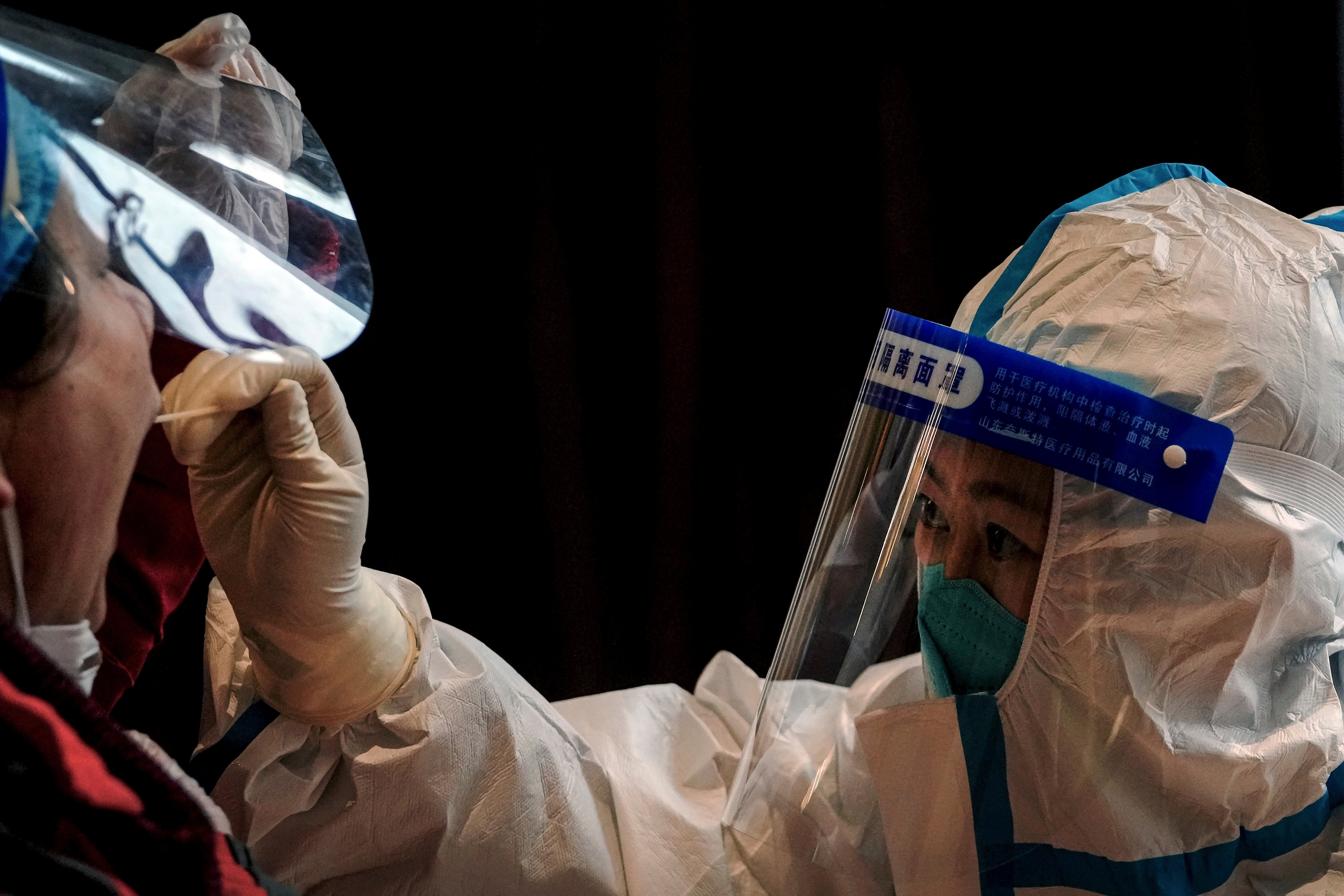
Your support helps us to tell the story
From reproductive rights to climate change to Big Tech, The Independent is on the ground when the story is developing. Whether it's investigating the financials of Elon Musk's pro-Trump PAC or producing our latest documentary, 'The A Word', which shines a light on the American women fighting for reproductive rights, we know how important it is to parse out the facts from the messaging.
At such a critical moment in US history, we need reporters on the ground. Your donation allows us to keep sending journalists to speak to both sides of the story.
The Independent is trusted by Americans across the entire political spectrum. And unlike many other quality news outlets, we choose not to lock Americans out of our reporting and analysis with paywalls. We believe quality journalism should be available to everyone, paid for by those who can afford it.
Your support makes all the difference.One in 15 people have Covid in new record high as cases rise by 7% in a week, new figures show.
According to the ZOE COVID Study incidence figures, there are currently 349,011 new daily symptomatic cases of COVID in the UK on average.
This is an increase of 7% from 324,954 reported last week, yet mask wearing is at its lowest level since July 2020, new polling by YouGov found.
Though the government insists it is time to adjust to living with Covid, the data shows that one in 15 people have the virus in England, while in Wales it is one in 18 and Scotland is one in 16.
But, in terms of how fast the virus is spreading, the lead scientist of the ZOE Covid Study app said the rate of infection (R number) looks like it is gradually losing pace.
Professor Tim Spector said: “While COVID cases continue to soar to all-time highs, the rate of increase is showing signs of slowing down.”
The R-value is estimated to be around 1.1 in the UK and regional R values are 1.1 for England and Wales and 1.0 for Scotland.
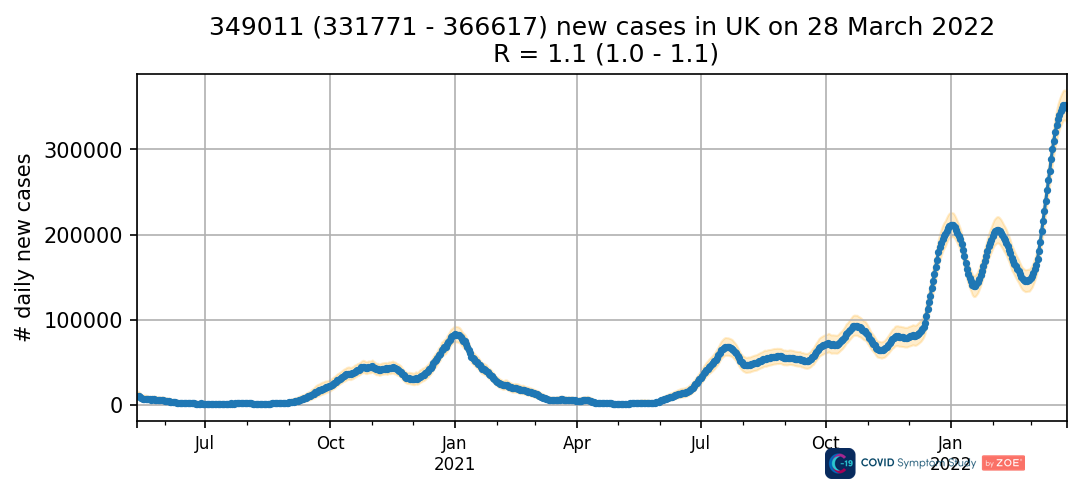
“This is a promising sign that we’ll hopefully see case numbers beginning to drop once again,” the professor said, adding: “However, as the Government cuts off free testing and all restrictions are lifted it’s difficult to predict where things will go from here.”
The ZOE Covid study shows that new daily symptomatic cases have stopped rising in regions of England and in the UK, though cases remain at record highs.
The study also analysed how many new cases have been seen per age group and found that new cases rates have begun falling in the youngest age group (0-17) and for age group 34-55.
It shows that new cases have stopped rising or are slowing down in the rest of the age groups.
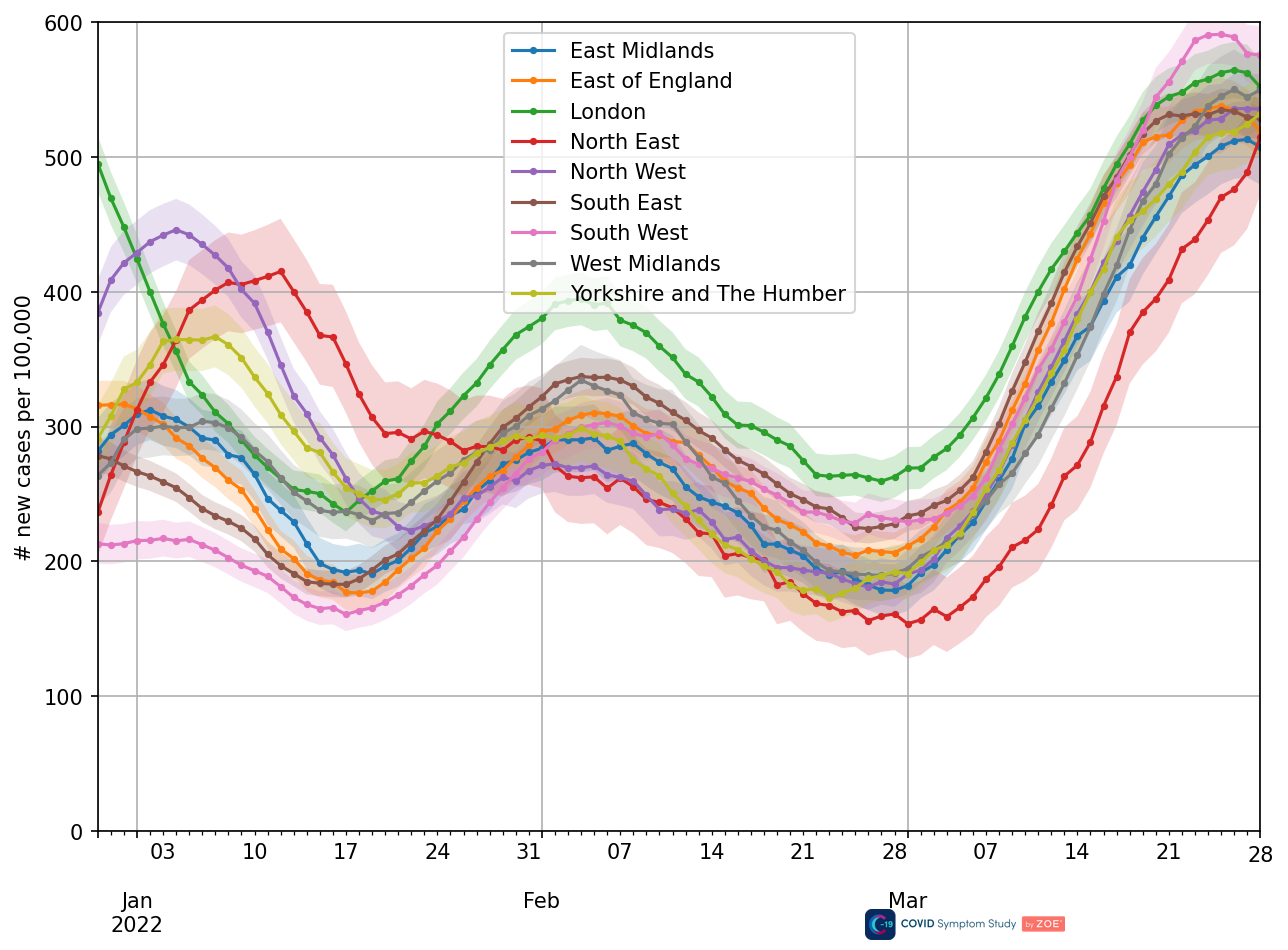
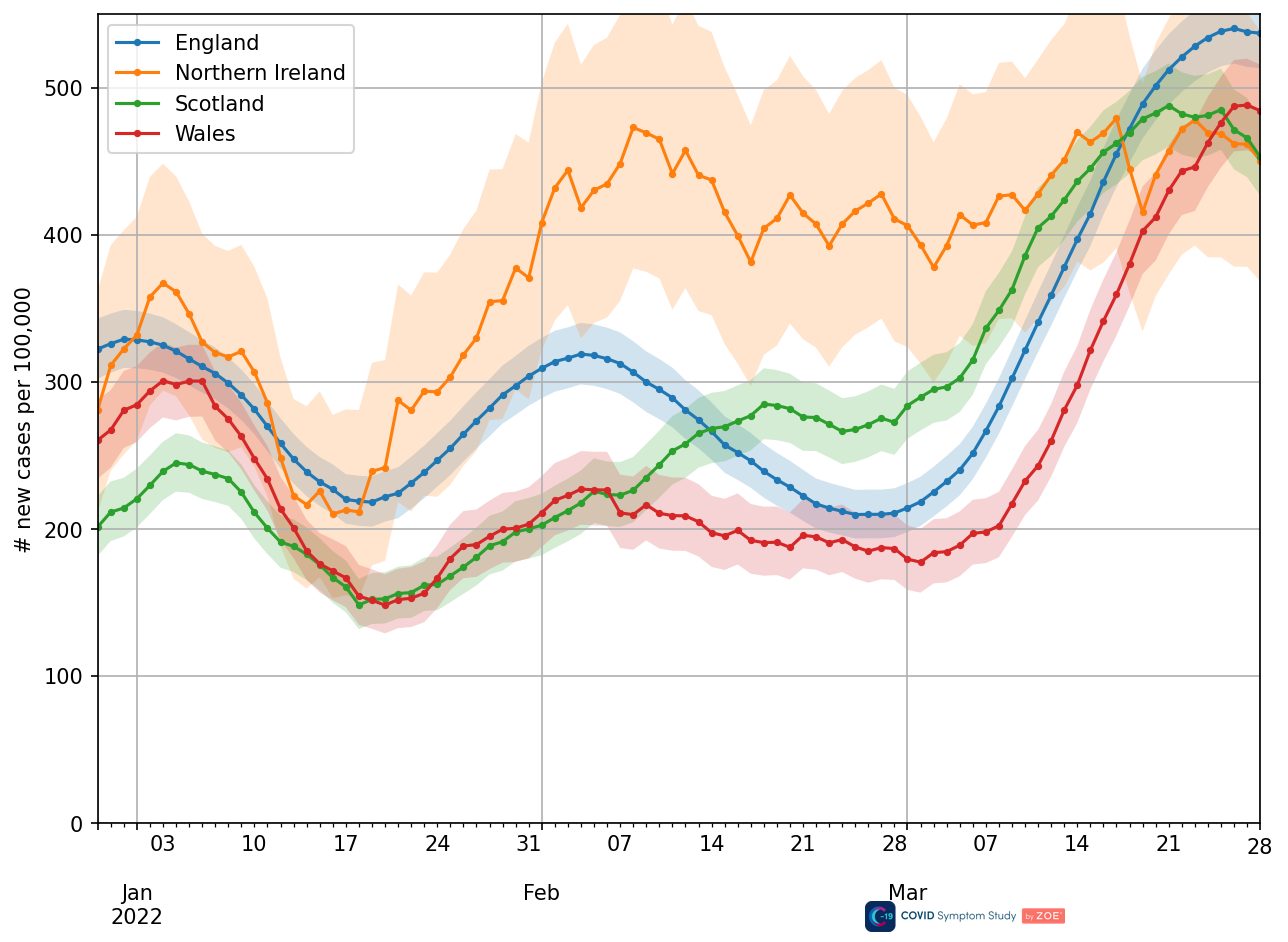
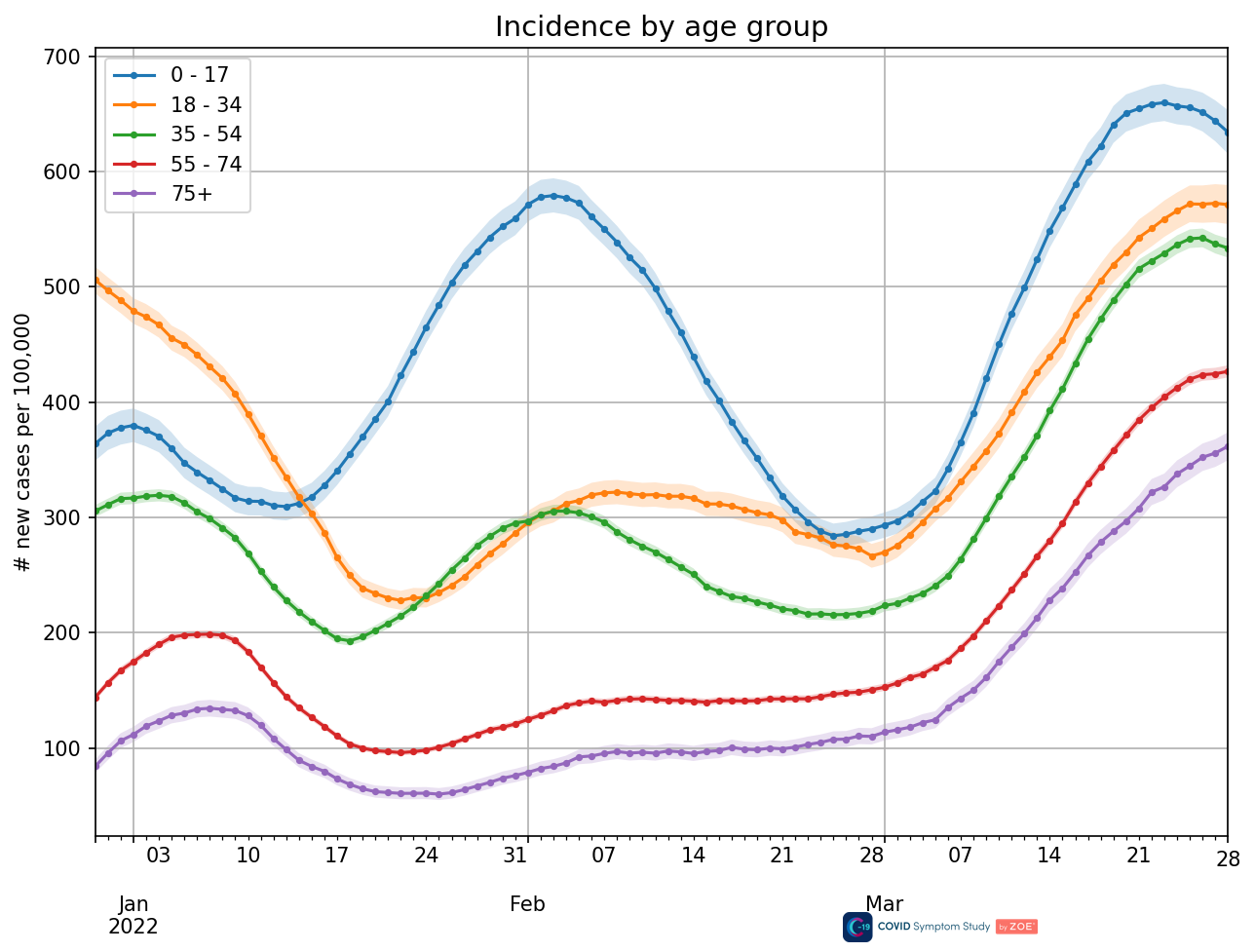
According to a YouGov poll, nearly half-45 per cent-of Britons now say that the COVID-19 situation in the UK is getting worse, up 34 points from the proportion who said this just last month.
Additionally, just three in ten now say that the situation in the UK is getting better compared to over six in ten who said this in February.

Despite this, 42 per cent of Britons say that they wear a face mask in public spaces – down 11 points from 53% on the last survey from 22-23 February as the government removed wearing face masks as a requirement in the new Living with Covid plan.
Ahead of Friday’s deadline to order free lateral flow tests from the government website, 58 per cent of people say they have taken a lateral flow test within the last month, 26 per cent say that they last took a lateral flow test longer than a month ago and 13 per cent said they never took one.
It is no surprise that high street retailers have reported a 400 per cent increase in sales in the week ending March 28, compared to the previous week as according to the survey, 81 per cent of Britons say they would take a lateral flow test if they thought they might have COVID-19 symptoms.
Prof Spector said: “Whilst LFTs are no longer free, we’re pleased to see early data from 100,000 ZOE COVID Study contributors that suggest LFT accuracy remains high.
“The data shows LFTs are almost 80% effective in detecting positive cases and as high as 97% accurate in identifying negative cases.
“This should reassure everyone that LFTs remain a valuable tool for monitoring COVID and everyone should have a small supply to test themselves when they have cold-like symptoms.”
The ZOE COVID Study incidence figures (new symptomatic cases) are based on reports from around 840,000 weekly contributors and the proportion of newly symptomatic users who have received positive swab tests.
The latest survey figures were based on data from 70,779 recent swab tests done on symptomatic cases in the two weeks up to 29 March 2022.


Join our commenting forum
Join thought-provoking conversations, follow other Independent readers and see their replies
Comments